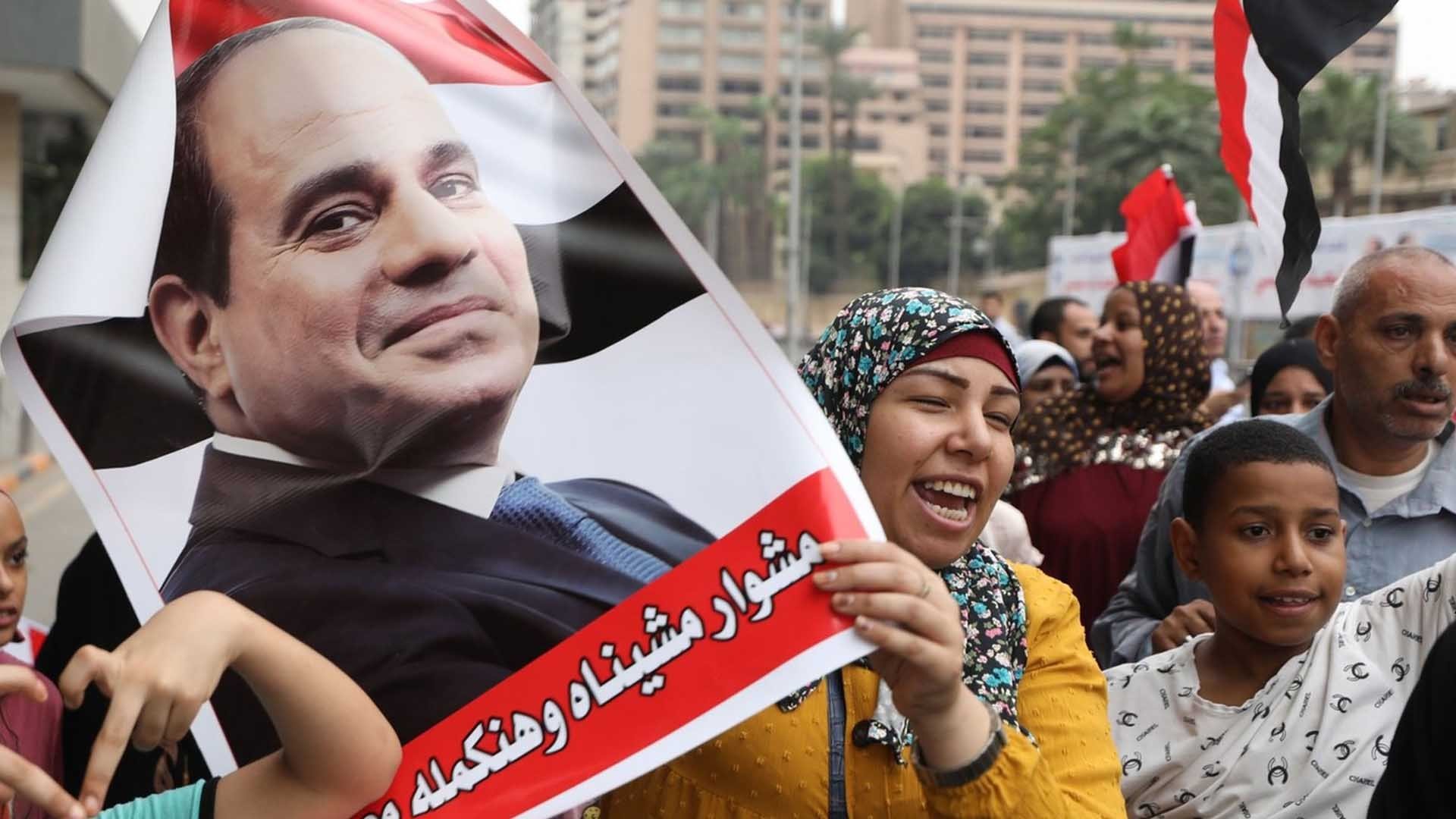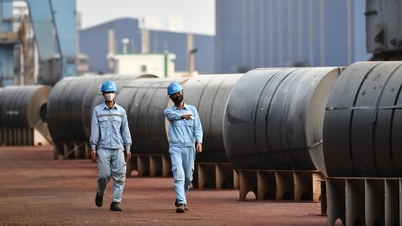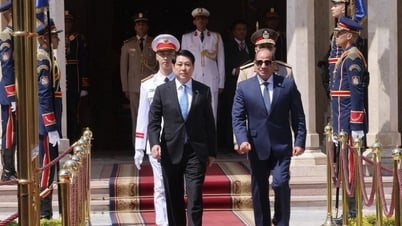There are many problems that the winner of the upcoming election needs to find solutions to soon in order to meet the trust and expectations of Egyptian voters.
 |
| Mr. Abdel Fattah el-Sisi is predicted to continue to win in the upcoming Egyptian presidential election. (Source: EPA) |
On December 10-12, voters in Egypt will exercise their civil rights in the presidential election.
This year's race features four politicians , including incumbent President Abdel Fattah el-Sisi as an independent candidate; Mr. Abdel Sanad Yamama, leader of the liberal Wafd party with the slogan "Save Egypt", prioritizing economic development and education; candidate Hazem Omar, Chairman of the Republican People's Party, a businessman who supports Mr. el-Sisi; Mr. Farrid Zahran, leader of the left-wing Egyptian Social Democracy party, who has close views with the incumbent President.
Previously, Mr. Ahmed Altantawy, former leader of the left-wing al-Karama party, and Ms. Gameela Ismail, Chairwoman of the al-Dostour party, left the Egyptian presidential race.
According to election law, if no one wins more than 50% of the votes, the runoff between the two candidates with the most votes will take place on January 8-10, 2024.
However, in the current situation, this scenario is unlikely to happen. Because the current President Abdel Fattah el-Sisi is considered to continue to win easily. In 2014 and 2018, this leader won with 97% support. This time, the result is probably no exception: Although there is no official survey, Mr. el-Sisi currently receives the support of 424/596 MPs in the House of Representatives, overwhelming the three remaining politicians participating in the election.
In that context, what the world is interested in is what this leader will do to help the country overcome many challenges, clearly shown in the following aspects.
First, the economy is in trouble. Prices are climbing: sugar has risen 36% in the past few weeks, from 35 to 55 Egyptian pounds ($1.78) per kilogram. Inflation peaked at 38% in September, but has now fallen to 34-35%. However, analyst Allen Sandeep of the Egyptian financial firm Naeem Brokerage believes that by 2024, it could be back to 40% as the Egyptian currency continues to depreciate.
Second, Egypt is facing a large amount of foreign debt. In 2024 alone, Cairo must pay up to 42.26 billion USD in debt, a record number in the country's history. After being delayed, the 3 billion USD financial support package that the International Monetary Fund (IMF) pledged in December 2022 has yet to arrive in Egypt.
Last but not least, there is the situation in the Gaza Strip. On October 7, the Israel-Hamas conflict broke out and shortly after, the Israel Defense Forces (IDF) completely surrounded the area. In this context, the Rafah crossing, controlled by Egypt, became more important than ever, as it is the only way for humanitarian aid to flow into the Gaza Strip. Under the leadership of President Abdel Fattah el-Sisi, Cairo has also become a “locomotive” in the current peace talks.
However, the conflict in the Gaza Strip has presented Cairo with many challenges, the most prominent of which is the influx of refugees. The country already hosts 9 million refugees and migrants from many other countries, including Syria, Sudan, Yemen and Libya. Opening its doors to the Palestinians means Cairo must address the resulting security issues, a consequence that President Abdel Fattah el-Sisi does not want to face.
These are all problems that the winner of the upcoming election needs to find solutions to soon in order to meet the trust and expectations of Egyptian voters.
Source



![[Photo] General Secretary To Lam, Secretary of the Central Military Commission attends the 12th Party Congress of the Army](https://vphoto.vietnam.vn/thumb/1200x675/vietnam/resource/IMAGE/2025/9/30/9b63aaa37ddb472ead84e3870a8ae825)
![[Photo] Solemn opening of the 12th Military Party Congress for the 2025-2030 term](https://vphoto.vietnam.vn/thumb/1200x675/vietnam/resource/IMAGE/2025/9/30/2cd383b3130d41a1a4b5ace0d5eb989d)
![[Photo] The 1st Congress of Phu Tho Provincial Party Committee, term 2025-2030](https://vphoto.vietnam.vn/thumb/1200x675/vietnam/resource/IMAGE/2025/9/30/1507da06216649bba8a1ce6251816820)
![[Photo] President Luong Cuong receives President of the Cuban National Assembly Esteban Lazo Hernandez](https://vphoto.vietnam.vn/thumb/1200x675/vietnam/resource/IMAGE/2025/9/30/4d38932911c24f6ea1936252bd5427fa)
![[Photo] Panorama of the cable-stayed bridge, the final bottleneck of the Ben Luc-Long Thanh expressway](https://vphoto.vietnam.vn/thumb/1200x675/vietnam/resource/IMAGE/2025/9/30/391fdf21025541d6b2f092e49a17243f)
































































































Comment (0)